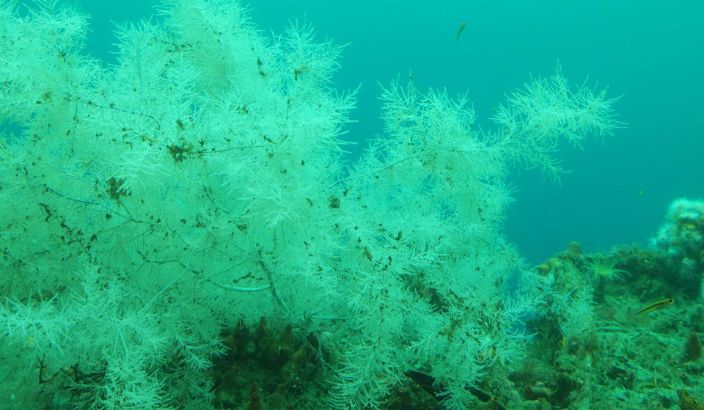Opinion: The Sounds needs more habitat to survive


Lack of habitat is considered the most pervasive to the biodiversity and functioning of marine ecosystems. Photo: Supplied.
Clive Barker
The recent report that Blue Cod fishing closures are to be extended, surely requires some intervention that increases life sustaining marine habitat for the Sounds. Lack of habitat is considered the most pervasive to the biodiversity and functioning of marine ecosystems.
Habitat loss or fragmentation can cause overfishing. By reducing fishable areas thus reducing the productivity of the marine environment. Artificial Reef deployment is one approach that has proven relevant to increase biodiversity into the marine estate. This project should be added into the Queen Charlotte College aquaculture academy.
An educational component is essential to engage the youth. For the future health of our oceans, it is crucial to enable them to become agents of change. To achieve this, they need to gain experience with the marine life that artificial reefs would supply. It would be unwise for the college Aquaculture Academy students to be allowed to sleepwalk into a future with numerous climate/ocean-related problems. Artificial Reefs are common projects for schools outside New Zealand. Te Maha school in Hawke's Bay is the only local school that has built and installed reef structures in New Zealand.
The Council has had reports on studies by Cawthron and the Environmental Defence Society among others but appear to have sat on their hands and done little to enhance the aquatic health of the Sounds.
We cannot afford, to leave the Sounds to stagnate by doing nothing- lets anchor their future with smart science and bold stewardship that artificial reefs have created for other countries.
The council has a whole raft of Policies for coastal environments to be enhanced but no policies that allow any Public good projects to proceed with any certainty.
Artificial Reefs fulfil policies 14.2.5 and 14.3.2 & 14.3.4 amongst other policies, in that they offer real outcomes safeguarding underwater biodiversity, also providing life-saving habitat for fish and crustaceans thus improving the ecological productivity in the Sounds.
This public good project should be granted a Permitted Activities Investigation, for Endeavour Inlet and let the College do their part, and provide a unique educational opportunity for students to engage with and contribute to marine conservation efforts.
This project gives a positive payback for fishing and aqua diving, that one expects to be of major interest for the hundreds of vessels utilising Picton's Marina's that also in turn inject funds into the local economy.
Why Endeavour Inlet, it’s away from the major shipping traffic has access to better quality ocean water that has more plankton type life that would utilize the reef modules. The trial with six modules of three different styles is the first step that would check settlement and costs.
The only comment from Council, they doubt the reefs would work and a resource consent is required $1295 upfront to start a hearing extra paid after hearing. As a district we have come to terms with increasing populations, there is a time to stop taking from the aquatic environment and give something back. In the Sounds it is Habitat, just as new subdivisions give extra habitat for the local population, the Sounds deserves the same.

